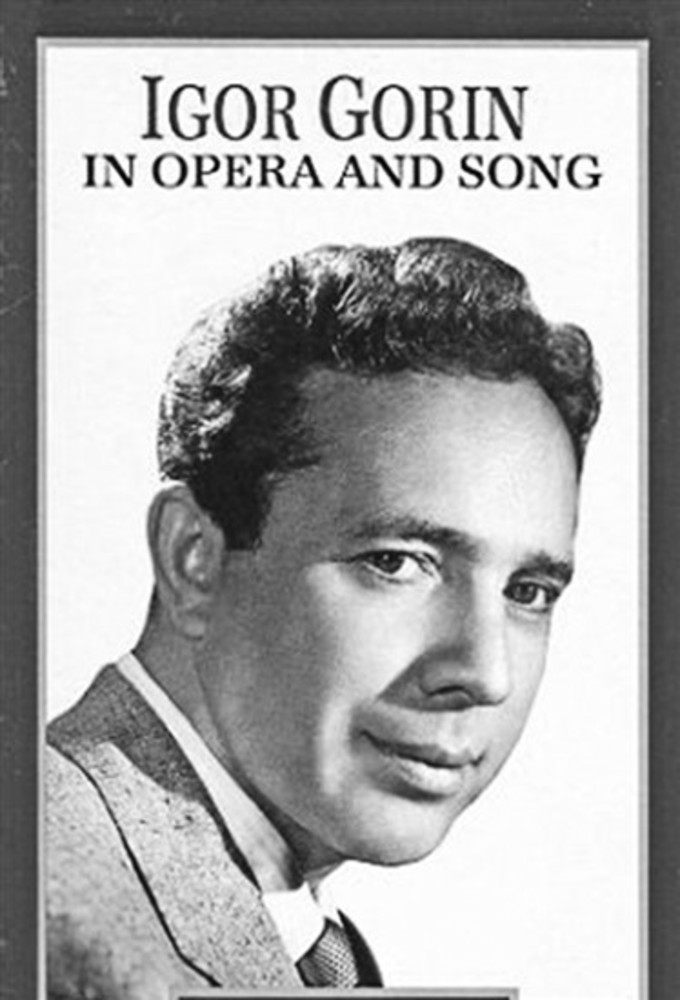A Cantor Who Became a Star
 Igor Gorin
Igor Gorin
A confession. I mourn the demise of the card catalogs, those sturdy oak cabinets once found in libraries large and small. Need to find an author, a book, information on a particular topic? A little white square on the front of each drawer advertised the alphabetical listing of its contents. Pull out the relevant drawer (it came totally out of the cabinet), et voila! The information you sought was there with pertinent data printed on the card. Stubby little pencils and strips of scrap paper were available for jotting down numbers or quick notes, just in case you did not come prepared.
There was a bonus as well, an adventure, if you will. Often, while flipping the cards in search of a specific subject, an unfamiliar topic, author or book – an entry not related to your quest – caught your attention. Unexpected new vistas opened, new areas of interest to pursue. Let us also not forget the pleasure of spending time in the library in the company of stacks of books and knowledgeable librarians.
Instead of exploring the treasures of the card catalogue, I now surf the web. Not as satisfying, but every so often I turn up a nugget like this: “A rare, unpublished recording of the unjustly forgotten Ukrainian baritone Igor Gorin…” on you tube.
Igor Gorin – a name once very familiar when radio was a main source of family entertainment and television was in its infancy. In those years, hour-long programs featured symphonic pieces and vocalists equally adept in operatic aria and classical song. Igor Gorin was a frequently featured artist.
Igor Gorin, originally Ignatz Greenberg, was born in Grodek, Ukraine in 1904. His father, a rabbi, enrolled him in a yeshiva, where he showed an aptitude for liturgical music. The family left Grodek after the Russian Revolution and settled in Vienna, where they knew only hard times. The young man worked at a number of menial, often physically demanding jobs, but it did not diminish his love for music. He was 16 when he auditioned for a synagogue choir. Someone, hearing him sing, recommended him to a renowned teacher of voice. He was assigned to an instructor.
After recovering from a bout of tuberculosis, Gorin received further musical training at the Vienna Music Academy and later became the head cantor of the Leopoldstrasse Synagogue. He also appeared in an opera.
In 1930 Gorin, his name still Greenberg, was enticed into coming to the United States to serve as a cantor. He remained for two years, returned to Vienna, but left as he realized what the rise of Hitler would mean for the Jews of Austria as well as Germany.
In the United States, Gorin began a new career as a soloist, appearing first at Radio City Musical Hall, then on radio, in operatic roles and even in movies. A bit of irony: he was the first hazzan (cantor) to sing “The Lord’s Prayer” at the request of the composer Albert Hay Malotte.
So what was his connection to our history in Rhode Island?
In 1929, Rabbi Jacob Sonderling was called to succeed Rabbi Morris Schussheim at Temple Beth Israel in Providence. (Rabbi Schussheim came back in 1933). Congregants remembered Rabbi Sonderling as a colorful, handsome figure, with a flair for the dramatic and an interest in the role of music in the synagogue service.
During a trip to Europe in 1930, Rabbi Sonderling was introduced to a young Viennese hazzan. The Rabbi persuaded the hazzan to accept a position at Temple Beth Israel. His name was Igor Greenberg, later Gorin.
Another tie to Rhode Island. At the Temple’s welcoming reception, Gorin found he had an aunt living in Providence, an aunt he never knew existed, who was a member of the congregation. Sadly, though their meeting was recorded, the aunt’s name was not.
Igor Gorin retired in the 1960s due to ill health. He died in Arizona in 1982 after a third career as Professor of Music at Arizona State University.
Did he ever return to Rhode Island? A good question for which we have no answer.
P.S. Happy to say – The Rhode Island Jewish Historical Association still has a card catalog.
Geraldine S. Foster is a past president of the Rhode Island Jewish Historical Association. To comment about this or any Rhode Island Jewish Historical Association article, email info@rijha.org.







